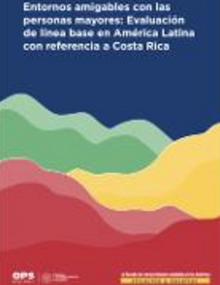Age-friendly Environments: Baseline Assessment in Latin America with reference to Costa Rica

|
Consolidating age-friendly environments is a goal of the Decade of Healthy Ageing (2021–2030). Under the World Health Organization (WHO) Age-Friendly Cities and Communities Framework the first step is to carry out a baseline assessment, with the active participation of older people, in order to determine the areas in which cities and communities must work to remove the barriers experienced by older people and create increasingly friendly environments adapted to their requirements. The WHO program recommends using the Vancouver Protocol to conduct this assessment. Due to particular complications, many Latin American countries have adapted it for local implementation in order to overcome difficulties that arose. Outlining the current knowledge available in Latin America and noting the experiences of cities and communities in the subregion, this document compiles examples and case studies of these adaptations, such as the program implemented in Costa Rica, which will guide policy actions that foster people's full development throughout the life course. In order to respond to the challenges posed by demographic transitions, it is essential to create tools that allow environments to be adapted in ways that promote healthy ageing. This requires accurate, up-to-date, and effective information. The Decade of Healthy Ageing establishes a period of focused action aimed at producing and monitoring information. This is the strategy that serves as the framework for this report. This publication is a part of the series on the: Decade of Healthy Aging in the Americas: situation and challenges. |
